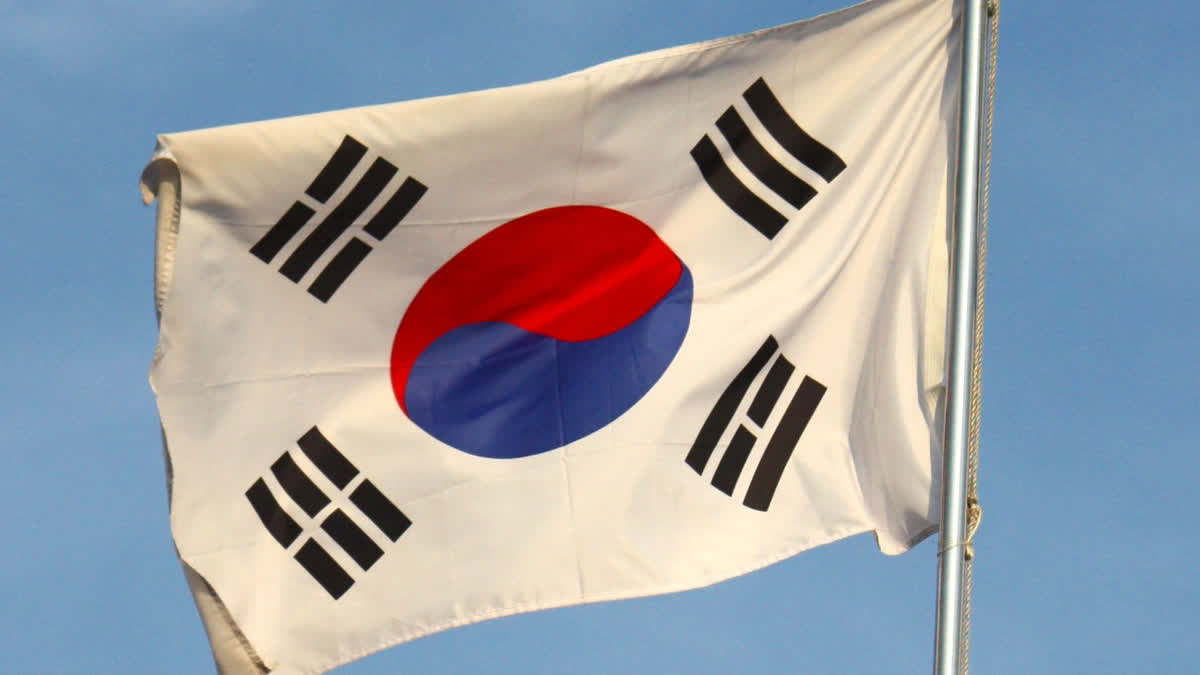New Delhi: South Korea has launched a new high speed train project called the Great Train Express (GTX) connecting capital city Seoul with its suburbs. The reason? To help people produce babies!
According to reports, on Friday, President Yoon Suk Yeol inaugurated a section of the first line of the GTX, connecting Suseo in the capital to the satellite city of Dongtan cutting down the commute time to 19 minutes from 80 minutes now on a bus.
“With the opening of the GTX Suseo-Dongtan section today, your lives will be greatly changed,” Yonhap news agency quoted Yoon as saying during the inauguration ceremony. “What used to take more than 80 minutes by intercity bus between Suseo and Dongtan will become 20 minutes by GTX. The arduous commute will be cut by more than an hour.”
Citing research that a reduction of an hour translates to 1.14 million won (US$848) per month in monetary terms, Yoon said what is more meaningful is the regained family time and work-life balance.
Earlier, in January this year, Yoon had pledged to reduce commuting times to the 30-minute range for people living in the greater Seoul area.
“Residents in major metropolitan areas nationwide spend a daily average of two hours commuting,” The Korea Times had quoted Yoon as saying during a town hall meeting in Uijeongbu, Gyeonggi Province. “In particular, for people living in Gyeonggi Province and Incheon, the journey to and from Seoul exceeds two-and-a half hours.”
He said that with proper transportation infrastructure, people will be able to sleep more or spend additional time on self-improvement. “Most importantly, it will allow them to spend more time with their families,” Yoon had said.
South Korea has the world’s lowest birth rate. This comes amidst concerns about national extinction and gender relations.
Recent statistics from the South Korean government revealed a worrying decline in the country’s fertility rate in 2023. Compared to the previous year, there was an 8 percent drop in the number of births. Experts have warned that if the current low birth rates persist, South Korea’s population of 51 million could be halved by the end of this century.
The data showed that the average South Korean woman is now expected to give birth to only 0.72 children throughout her lifetime, a significant decrease from 0.78 in 2022. Moreover, projections indicate that this fertility rate could plummet even further to 0.68 by 2024.
This precipitous decline in births highlights the severity of South Korea’s demographic crisis and the urgency to address the underlying societal, economic, and policy factors contributing to the nation’s dwindling fertility rates. Failure to reverse this trend could have profound implications for the country’s future workforce, economic productivity, and social support systems.
So, why is the birth rate so low in South Korea? The East Asian nation has a very competitive job market and long working hours, which makes it difficult for couples to balance work and family life. High housing and education costs also discourage some from having multiple children.
Like many developed countries, South Korea has seen a shift towards more individualistic values, with marriage and childbearing becoming less of a priority for some. The idea of having just one child or remaining childless is more accepted.
Despite increases in female workforce participation, South Korean society still places a larger childcare burden on mothers compared to fathers. This makes it challenging to combine career and family. A report in Al Jazeera in February this year vindicates this.
“Having a baby is on my list, but there are windows for promotions and I don’t want to be passed over,” Al Jazeera quoted Gwak Tae-hee, a 34-year-old junior manager at a Korean dairy product maker who has been married for three years, as saying.
